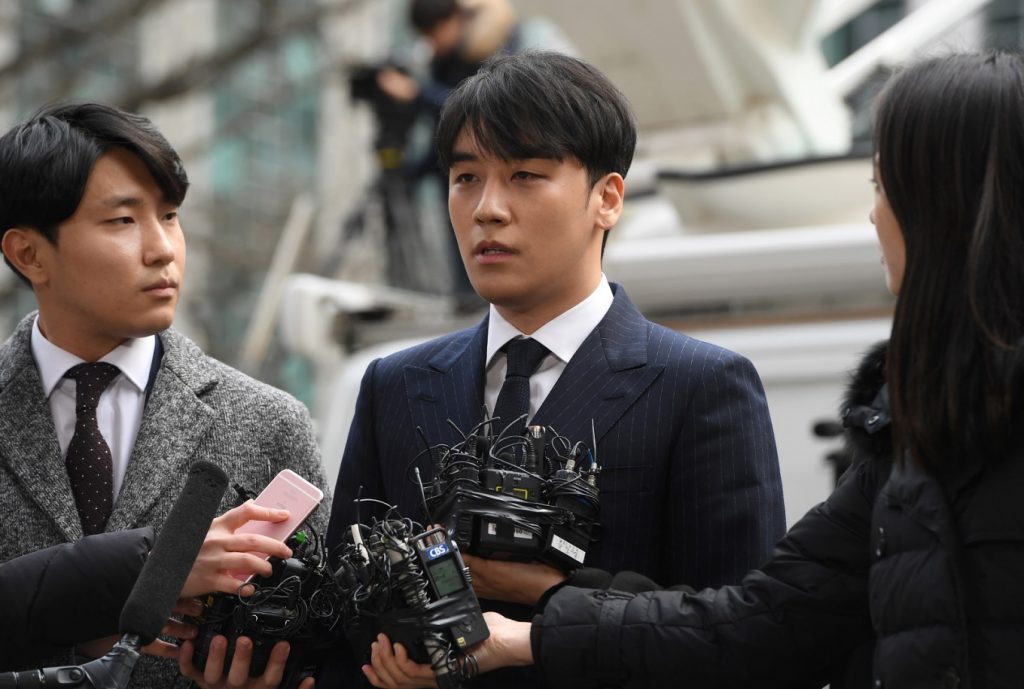In recent months, the South Korean entertainment industry has experienced waves of turmoil as reports of drug trafficking, corruption and sexual assault, involving numerous celebrities, have emerged. Labeled “scandals” in South Korea, an overarching term for various indiscretions committed by those in the public spotlight, these reports have made headlines in national and international news. Many well-established celebrities have been found to have been involved, and ongoing investigations have revealed the darker side of an industry that prides itself on perfection. One of the most significant revelations in the midst of these investigations has been this year’s biggest case, the Burning Sun scandal, which has highlighted the severity of the gender disparity in South Korea and has since given rise to the country’s own feminist movement.
South Korea’s Burning Sun scandal encapsulates two smaller, but related, cases. The first case involves issues of prostitution, drug trafficking, sexual assault, bribery and corruption at Burning Sun, a now defunct club in the upscale Gangnam district of Seoul, South Korea. The second involves issues of sexual assault, drug usage and bribery, detailed in text messages recovered from singer Jung Joon-young’s phone.
The Burning Sun case began in January 2019 when a civilian, Kim SangGyo, detailed his assault at the club and the later mistreatment he experienced at the hands of the police to the public. Kim SangGyo had allegedly witnessed a woman being sexually assaulted at the Burning Sun club when staff members attacked him for intervening. He said he then called the police for help, but was attacked and arrested instead. Kim SangGyo’s subsequent plea for help through his social media led to an investigation into the club, which revealed possible evidence of police misconduct, drug use, sexual assault and prostitution.
First reported in early March by reporter Kang Kyung Yoon and lawyer Bang Jung Hyun, the Jung Joon-young group chat case has generated significant media coverage because of the celebrities linked to the case. Unlike the Burning Sun scandal, this case has direct ties to well-known figures in the Korean entertainment industry. In an industry where celebrities are held to extremely high standards of conduct both in and out of the public spotlight, even the smallest indiscretion sparks interest.
Recovered group chat messages from singer Jung Joon-young’s phone revealed numerous incidents of sexual assault, bribery, drug use and corruption. It is alleged that the messages were discovered by an employee who was tasked with fixing the singer’s phone. The chat messages revealed the group members’ patterns of sexual assault, such as hidden camera filming of sex acts, and documented frequent drug use. The case has ignited national outrage, as the hidden camera problem, known as the spy cam epidemic, is especially prevalent in South Korea. The case also highlighted the consequences of misogyny and patriarchy in a conservative society as the group chat members were all male, and most were well-known celebrities.
At the forefront of both scandals is Seungri, the 28-year-old member of Korean pop band Big Bang. Prior to the scandal, Seungri had been known in the industry as a successful businessman and singer whose only flaw was his extravagant lifestyle. Seungri, who was first linked to the assault case as the executive director of Burning Sun, was later found to be a member of the group chats involving Jung Joon-young. Both men have since retired from the entertainment industry. On March 21, Jung Joon-young was arrested on for allegedly filming and sharing explicit videos. On May 10, another member of the chat room, singer Choi Jong Hoon was arrested for alleged sexual assault and attempted bribery. Four more members of the group chats currently under investigation are Roy Kim, Eddy Kim, Lee Jong Hyun and Yong Junhyung.
The two cases have shone a light on sexual exploitation in the entertainment industry. Korea’s equivalent of the “casting couch,” referred to as “serving drinks,” has recently gained significant media attention and led to the reopening of a 2009 case in which a rookie actress accused 31 prominent men of sexual assault. The reopening of the Jang Ja-yeon case happened as a direct result of a national petition that generated more than 600,000 signatures. Ten years ago, the case was quickly closed, and only two of the 31 men were indicted, one of whom was the late Jang Ja-yeon’s manager, and the other was the CEO of her agency. Both of their sentences came to just a few months. Today, new evidence as well as testimony from the late Jang Ja-yeon’s labelmate and friend, actress Yoon Ji-oh, gives the case a second chance at justice.
All three cases have led to the rise of a feminist movement in Korea that aims to change the image of the woman in a traditionally conservative South Korea. But more than just a movement about one cause, the feminist movement appears to reflect the wishes of a new generation of socially conscious South Koreans who have campaigned to bring about change and lead the country into a new era. On the heels of recent positive changes, such as the new presidency and peace summits between the two Koreas, the people continue to rally for truth, change and peace.



